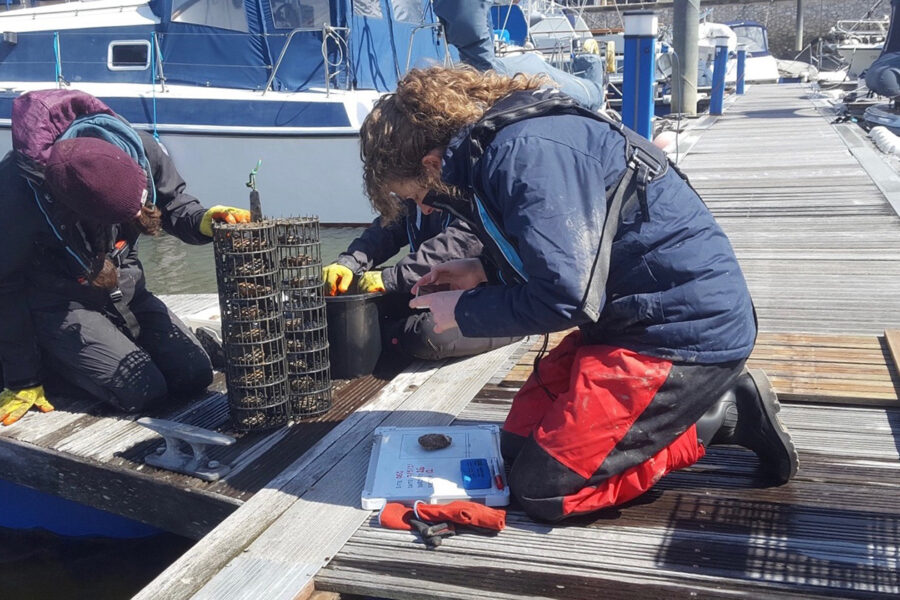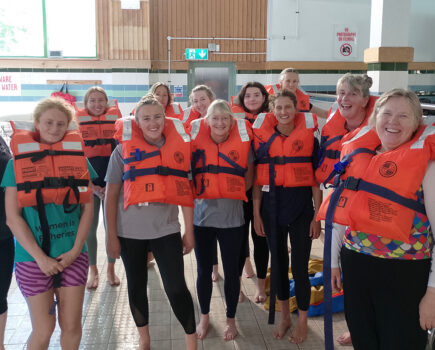A move to bring back native oysters by creating new habitat in North Wales has raised some concerns from mussel fishermen in the area, who say that the oysters are being ‘restored’ on the edges of licensed mussel areas, where there are no records of previous oyster beds.
The Conwy project, part of wider moves to support the recovery of wild oyster stocks around the UK being undertaken by a partnership including the NGO Blue Marine Foundation, the University of Portsmouth and the Zoological Society of London (Fishing News, 11 May, ‘Warsash fleet looks to oyster revival’), saw the laying of 650t of substrate 2m below the low water mark earlier this month.
The wider oyster restoration project has largely been welcomed by all sectors of the fishing industry. Native oysters are extremely efficient water purifiers, and the reefs they create provide habitats that support a wide variety of other fish species.
However, despite assurances that the creation of the reef in Conwy Bay has been undertaken after consultation with stakeholders and expert input, local fishermen claim that the efforts to restore the species there are flawed.
One of the fishermen who contacted FN said: “We’re aware of oyster work in the marina here, where there are floating hatcheries, and have absolutely nothing negative to say about these – or, indeed, the plan to restore Welsh oysters to areas where they have been lost.
“The issue is that we knew nothing about this next step, laying 650t of hard substrate
out on the edge of the mussel beds. Between us here there is centuries of knowledge about the shellfish and seabed, and we’re disappointed that local expertise wasn’t bought to bear here. None of our local knowledge or input was sought when this was planned.
“The material for the reef is going into an area where we have no memories or historic records of oysters being found, and which is on the edge of existing mussel beds, and we worry it may inhibit chances of the mussels recovering.
“This new reef is in a bass nursery area and a Special Area of Conservation. It may subside, but at the moment the deposited rocks seem to be about a metre high on the seabed, in an area that only draws 2m at low tide anyway.
“It’s a hard one for us. We all want to see a return of the shellfish industry to the region, including oysters. The mussel fishery now only employs a tenth of the local fleet it used to, and spatfall on the grounds themselves, for reasons we don’t fully understand, continue to be poor. But we’re not sure that risking damage by altering the edge of the mussel areas, for a species that we don’t think has been there in the past, is the way to go about this.”
A spokesperson for the Wild Oysters Project told FN: “The project began working in Conwy Bay in August 2020 in partnership with local delivery partner Bangor University, forming a local working group made up of 20 key stakeholders including local experts from the School of Ocean Sciences at Bangor University, Natural Resources Wales, the Conwy Harbour Authority and local mussel fishers.
“The Wild Oysters Project regularly shared project information via meetings and written updates with the local working group, along with stories in regional and national news, social media channels, public notices, and partner and project websites.
“The Wild Oysters Project has now begun work to restore a native oyster reef in this location by laying locally sourced limestone aggregate – an ideal reef material, as it occurs naturally as a feature of the Menai Strait and Conwy Bay Special Area of Conservation – determined by expert marine conservationists to be an ideal settlement material for shellfish and other marine animals.
“The reef will be completed in coming weeks by laying a mixture of cockle and scallop shell – providing a suitable settlement substrate – before laying live native oysters.”
This story was taken from the latest issue of Fishing News. For more up-to-date and in-depth reports on the UK and Irish commercial fishing sector, subscribe to Fishing News here or buy the latest single issue for just £3.30 here.
Sign up to Fishing News’ FREE e-newsletter here.








